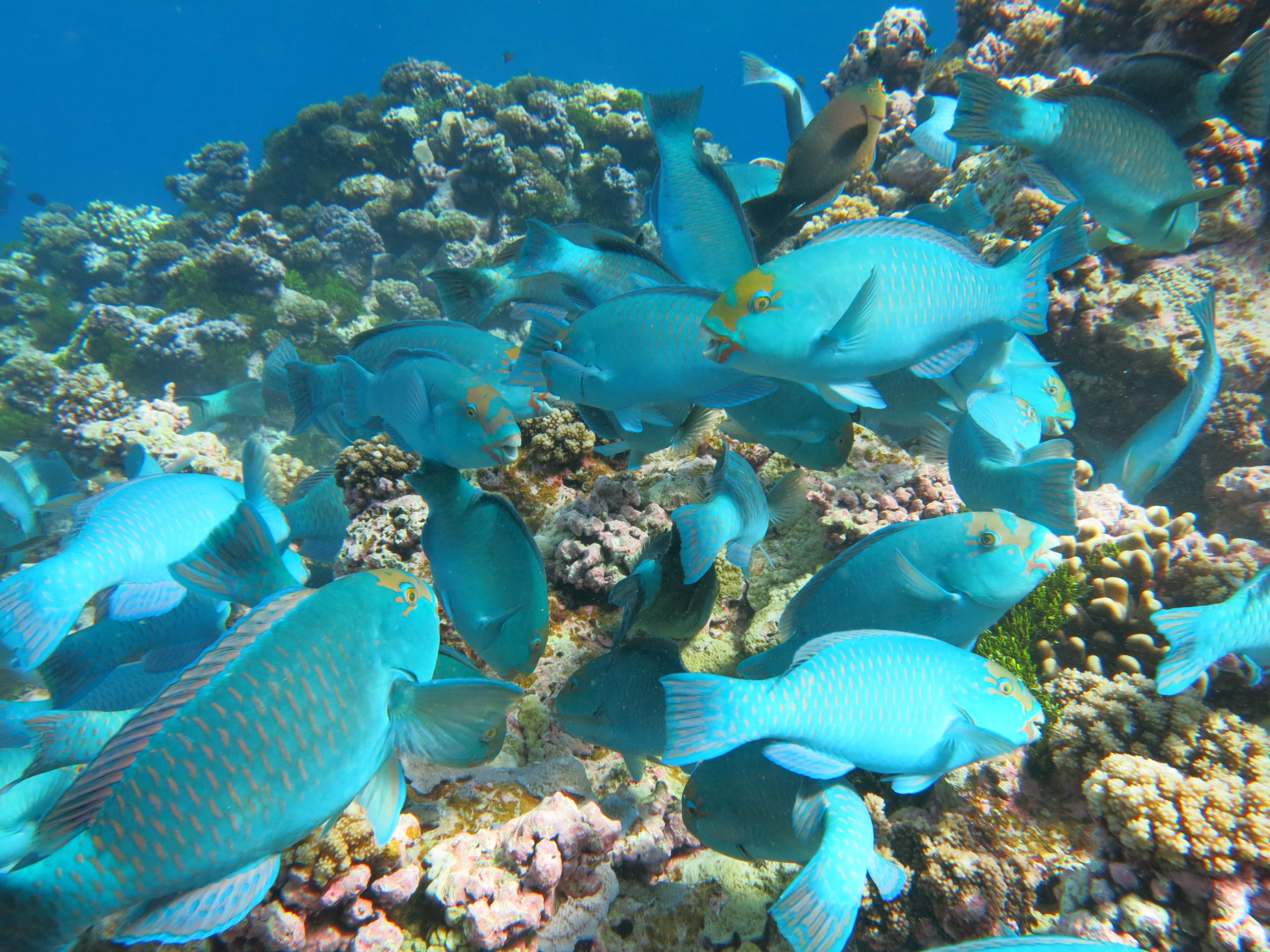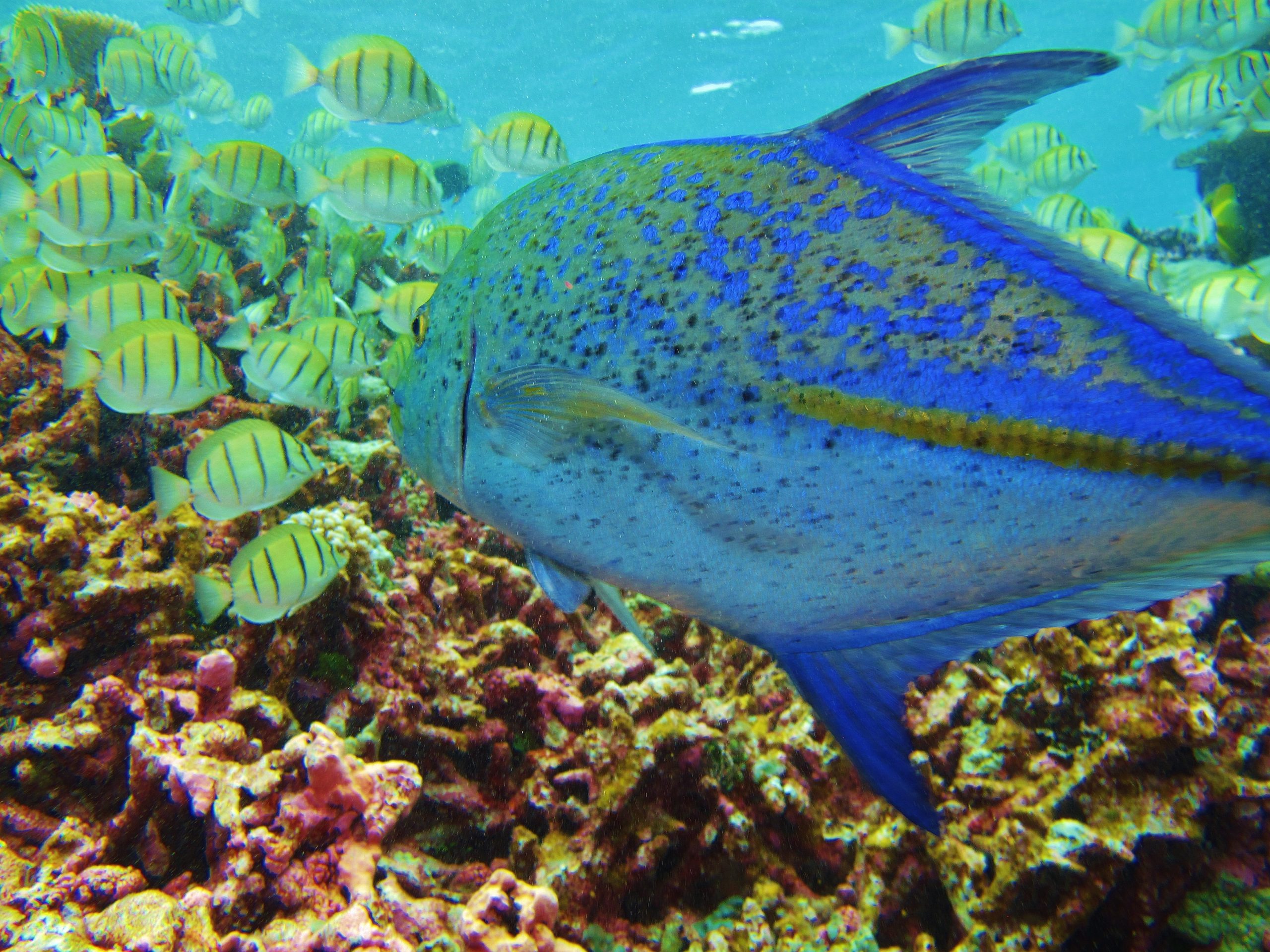Overfishing is a widespread problem across our oceans. As our global human population quickly approaches eight billion, pressures on these ocean resources will only increase.
That means bad news for coral reef fish. They are even more vulnerable to overfishing than pelagic (open ocean) fish because of their biology, said Dr. Charles Birkeland in his Tuesday morning plenary session at the International Coral Reef Symposium (ICRS). Coral reef fish are slow growing and long-lived, and there’s ample evidence that older, bigger fish are more fertile and produce young that are better equipped to survive the larval phase.

Coral reef fish play a vital role in the coral reef network of life. For example, herbivores, or grazing fish, eat algae and seaweeds and can prevent them from overgrowing corals on a reef. In this morning’s plenary address, Dr. Pete Mumby explained that coral larvae, or baby corals, are less likely to settle on a reef where algae is present. By keeping algae in check, herbivorous reef fish can facilitate coral recruitment and reef recovery.
Coral reef fish are also the lifeline for many communities, providing an important source of food and income. That income can come directly from the sale of fish, and can also be generated by tourism (let’s be real, who doesn’t love to see reef fish while on a dive?). Combatting overfishing can therefore benefit communities in multiple ways. For example, one study from Palau quantified the value of sharks to tourism as compared to fisheries and found that sharks were much more valuable alive than dead. The same study found that tax revenue from scuba tourism was 24 times higher than the total revenue of the fishing industry. Birkeland suggested that communities will benefit by limiting reef fish to local markets rather than exporting them. In fact, Palau banned the export of coral reef fish, which has been great news for both reefs and the communities that rely on them.

It’s no wonder that so many efforts focus on addressing overfishing on reefs. The stakes are high—500 million people rely on coral reefs. But is addressing overfishing alone really enough to save our coral reefs?
Melanie McField from the Healthy Reefs Initiative (HRI) says perhaps not in the Caribbean. In a new study of the Mesoamerican Reef region, McField found that the presence of algae on a reef did not correlate with the population of herbivores. External factors like poor water quality also contributed to reef decline. This means that protecting herbivores alone won’t save coral reefs: it’s important to combat overfishing in conjunction with cleaning up water quality, which is what we are doing in Honduras.
This is a common thread at ICRS this year. As you’ve read over the last few days, it’s not enough to address a single threat in isolation. We need to take a holistic approach to addressing multiple local threats if coral reefs are going to adapt to the many global changes coming their way.
